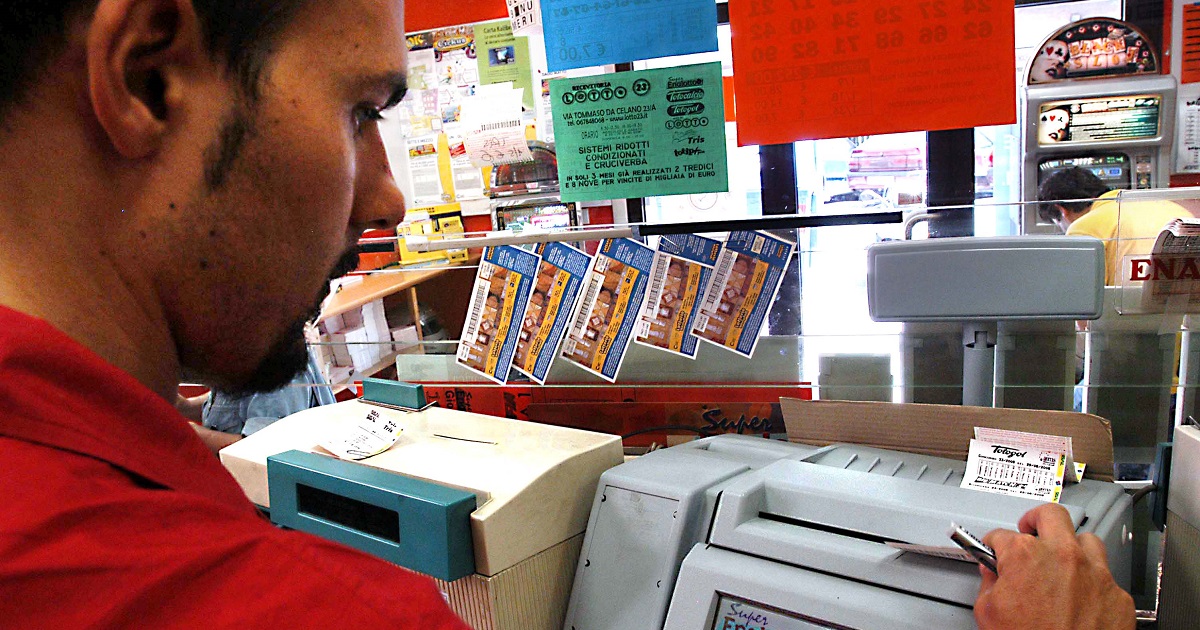A tobacconist from Lecce has sued two customers believing he is a creditor of the defendants for having allowed them to play the game of debt lotto at their own betting shop and that they have not obtained the repayment of part of the sums lent for the total amount of €20.800,00.
The defendants appeared in court and contested that I have never played the lotto and then to have only made small bets with small sums (2-3 euros); they also stated that the plaintiff's request was generic and incomplete; that, in any case, the case was attributable to the sale of goods by a trader to someone who does not trade in it so that the right to obtain the sale price was barred pursuant to art. 2955 n. 5 c.p.c.; the Court of Lecce considered that there had been an agreement between the parties a mortgage contract and that the plaintiff had fulfilled the burden of proof placed on him pursuant to art. 2697 c.c. having proven not only that the defendants, whom he had known for some time, were assiduous players at his own betting shop but also that they had become avid players by making bets of €2.500 on a late number to the point of asking the tobacconist to be able to continue to playing on credit with consequent payment, by the lending actor, of the related sums advanced into the coffers of the State Monopolies; following the appeal of the losing parties, the Court of Appeal of Lecce completely rejected the appeal, subsuming the case in the contract of mortgage and therefore deeming the presumptive prescription referred to in art. inapplicable. 2955 n. 5 c.c.; it also confirmed the first instance ruling regarding the fulfillment of the burden of proof of the right to credit;
Subsequently, the two clients appealed to the Court of Cassation. With the first reason - violation of the articles. 1813 and 2955 n. 5 c.p.c. in relation to the art. 360, co. 1 n.3 c.p.c. – the appellants complained that the Court of merit erroneously framed the case in the loan contract, rather than in the typical case of a commercial transaction between entrepreneur and consumer or retail sale of goods, i.e. the coupon of the lotto, thus failing to note that the right to payment of the price has become statute-barred;
with the second reason - violation of the articles. 1813 and 2697 c.c. In relation to the art. 360, co. 1 no. 3 c.p.c. - the appellants are challenging the head of the sentence which deemed proof of the existence of the conditions of a verbal loan contract to have been achieved on the basis of mere testimonial evidence, when, instead, the appellant had not given rigorous proof of the agreements occurred, the amount of the sums borrowed, the sums actually borrowed, the obligation, the times and methods of
refund nor would it have produced the ticket stubs for the games a lotto and the company's accounting books indicating the size and timing of the bets made by the defendants.
The Court of Cassation rejected the appeal, reiterating that "the gaming and betting contract exists between the public concessionaire and the bettor and is regulated by a ministerial regulation of non-agreement formation, having the nature of public-administrative negotiation; it follows that the bet collector is a third party unrelated to the contractual relationship but who, in the case in question, has assumed the role of lender in favor of the bettor of the money necessary to proceed with the bet; therefore the alleged erroneous subsumption of the case in the mortgage discipline rather than in that of the sale of goods, deduced with the first ground of appeal, is manifestly unfounded;
the sentence, in the part in which it classified the case as a "mortgage", is entirely compliant with the consolidated direction of this Court, to which the Board intends to give continuity, according to which "The sole awareness, in the lender, that the sum given as a mortgage will be used by the borrower to gamble or bet is not sufficient to extend the regulation of gambling debts to a different typical shop; therefore, it is still up to the lender to take action for the repayment of the amount given as a loan, if there is no direct interest in the borrower's participation in the game" (Cass. 3, n. 17686 of 2/7/2019; see also Cass. 3, no. 14375 of 27/5/2019 according to which "The extension of the provisions of art. 1933 of the civil code, concerning gaming contracts, to mortgages connected to them - such as donations of money or "chips" , or mortgage promises, or debt acknowledgments - exists only when they constitute means functionally connected to the implementation of the game or bet and are such as to achieve the same practical purposes of the gaming relationship among the players, contributing to the direct interest of the lender to encourage the borrower's participation in the game").
The second reason is also unfounded the mortgage “a real contract which is perfected with the delivery by the lender of a certain quantity of money or others so fungible and the obligation on the part of the borrower to return things of the same kind and quality; for the principle of freedom of forms the written form is not required at all except for the agreement on interests so that testimonial evidence and formal interrogation are entirely suitable means of proving the completion, through the material giving of money, of the mutual. Nor does the appellants' argument have any merit according to which the plaintiff should have produced the ticket stubs for the games a lotto as proof of credit and the company's accounting records, as the title certifying the stake at lotto it is a receipt in the possession of the bettor and not of the bet collector”.











